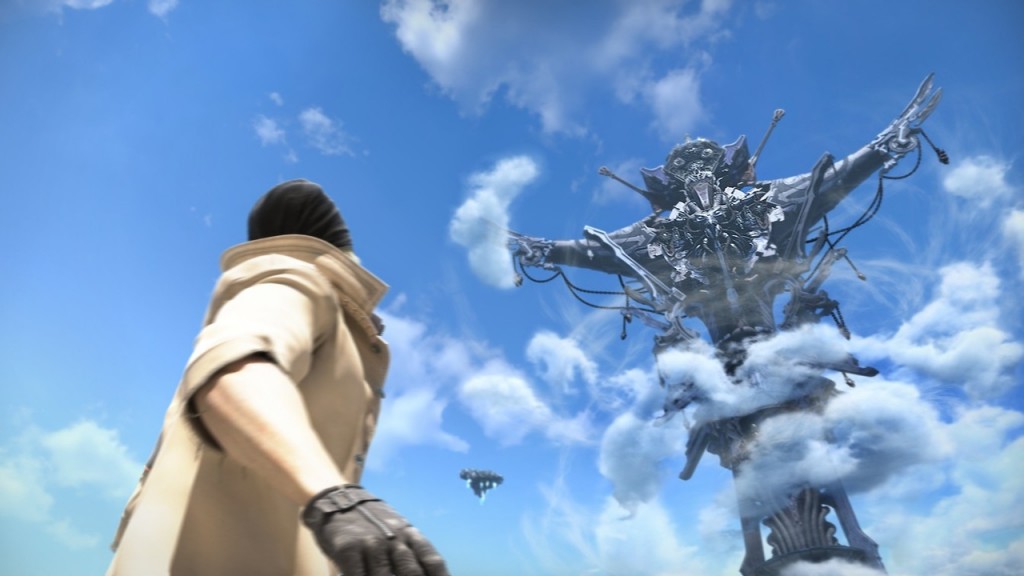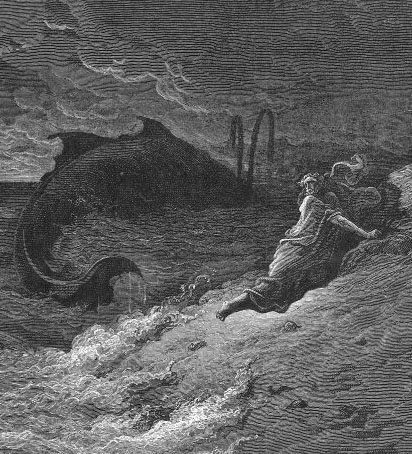Last updated on November 5, 2013
God’s mercy angers Jonah. He knows of their sin, yet he doesn’t think of forgiveness or even how God treated HIS personal disobedience. God has to force His disobedient servant to action and doesn’t even punish him for those trangressions, yet God, according to Jonah, must punish others for their slights against God. I find this secretly hilarious, yet also completely related to human perception. We believe we are in control, that we can live a life of perfection without mistake. When we make those mistakes, we run away or rationalize our actions. When others make said mistakes, we take the exact opposite perspective as if we are gods ourselves. So, how does God show us the proper perspective? Take a look at Jonah chapter 3-4:
0 When God saw their deeds, that they turned from their wicked way, then God relented concerning the calamity which He had declared He would bring upon them. And He did not do it.
But it greatly displeased Jonah and he became angry. 2 He prayed to the Lord and said, “Please Lord, was not this what I said while I was still in my own country? Therefore in order to forestall this I fled to Tarshish, for I knew that You are a gracious and compassionate God, slow to anger and abundant in lovingkindness, and one who relents concerning calamity. 3 Therefore now, O Lord, please take my life from me, for death is better to me than life.” 4 The Lord said, “Do you have good reason to be angry?”
Does he? Why should Jonah be angry that people see his God as all=powerful, merciful, and kind? Didn’t He just treat Jonah the same way? Let’s look at Jonah’s claim here. He thinks that he said something to the effect that he already predicted God’s mercy. However, this isn’t recorded in the text as demonstrated below in Chapter 1:
1 The word of the Lord came to Jonah the son of Amittai saying, 2 “Arise, go to Nineveh the great city and cry against it, for their wickedness has come up before Me.” 3 But Jonah rose up to flee to Tarshish from the presence of the Lord. So he went down to Joppa, found a ship which was going to Tarshish, paid the fare and went down into it to go with them to Tarshish from the presence of the Lord.
Jonah didn’t say much of anything here; in fact, it looks like he runs away instead! Although he complains to God after the fact, he doesn’t say so much of a word in the context of our story here, though apparently he did reject his prophetic call by his actions. Jonah’s disobedience leads the mean in the boat to Tarshish in danger of death and destruction. Jonah knows this all too well and lets the crew of the ship throw him overboard. He doesn’t seem too surprised by this turn of events, as chapter 2 seems more a joyous celebration of God’s mercy to him than a lament about his “forced” mission:
“I called out of my distress to the Lord,
And He answered me.
I cried for help from the depth of Sheol;
You heard my voice.
3 “For You had cast me into the deep,
Into the heart of the seas,
And the current engulfed me.
All Your breakers and billows passed over me.
4 “So I said, ‘I have been expelled from Your sight.
Nevertheless I will look again toward Your holy temple.’
5 “Water encompassed me to the point of death.
The great deep engulfed me,
Weeds were wrapped around my head.
6 “I descended to the roots of the mountains.
The earth with its bars was around me forever,
But You have brought up my life from the pit, O Lord my God.
7 “While I was fainting away,
I remembered the Lord,
And my prayer came to You,
Into Your holy temple.
8 “Those who regard vain idols
Forsake their faithfulness,
9 But I will sacrifice to You
With the voice of thanksgiving.
That which I have vowed I will pay.
Salvation is from the Lord.”
This feels severely out of character. One moment, he’s running away from his destiny. The next? He’s praising God from the belly of the whale or fish. I’d call it a form of extreme apathy – he knows God will take him to a particular point, and he feels as a perfunctory player in a series of events designed to show God’s great mercy. God will either 1. request that you do His command a second time or 2. forcibly bring your life’s circumstances to a breaking point where service to His name exists as your only escape. Jonah KNOWS he must pick the latter, for the former will repeat again, and again, and again. God’s long-suffering, after all, apply to Jonah as much as to Ninevah.
Jonah laments how unnecessary his trip seemed. Why bother, he asks, with going to preach judgement if I already know what’s going to happen when I get there? Oh boy, the all-merciful God sends me on a useless trip to save some people when he could, just as easily, cause their own repentance themselves. Actually, what I find remarkable is God’s willingness to use human beings to proclaim His message, rather than doing it all Himself. Jonah doesn’t recognize the honor of such a task, only the consequences. Our approach to life works similarly – we devote ourselves to the end result and not the journey. If you think of the Bible as a four thousand year process and plan, set by God for the redemption of the world, why would you expect your life and the tasks you perform NOT to be involved in that process?
Jonah, then, views the world only from a personal perspective, not the big picture. He’s selfish, unable to see the great grace and mercy of God as a boon, only an inconvenience. The protagonists of Final Fantasy XIII face a different proposition – a task they must complete or they will receive a fate worse than death. The former situation works within a paradigm of a loving, and just, God; the latter shows the capricious manipulative gods of another world, almost like the polytheistic religions of Greek and Rome. In Jonah’s situation, he clearly knows what God will do, although he does not understand his objective if it could be done without his intervention; in FFXIII, they know neither their Focus nor the will of the fal’Cie until far into the game.

Of course, fal’Cie aren’t going to be nice and tell you what to do; after all, they represent that oh-so-common JRPG trope of evil false religions and gods that don’t care for anyone but themselves. From summoning demons into the world to complete and utter destruction, the “evil Christianity” trope has been found in so many JRPGs it may as well be a trope. There’s a justified cultural reason for that bias – the Tokugawa Shogunate banned Christian practice towards its end as a cause of famine and pestilence, prompting huge persecution against bother native Japanese and foreigners until Matthew Perry arrived. The god of Western culture (as perceived through Europeans) was seen as a negative force, one that prevented the full flowering of human independence; thus, Japan could no longer tolerate foreign influence. They must leave.
It’s no surprise that Christianity remains an obscure religion in Japan to this day, making up less than one percent of the total population. Still, I find FFXIII takes an entirely different perspective due to its focus on the human beings, rather than the arcane metaphysics of a new world. They show us, instead, the fate of gods not worth serving, gods who only serve their own devices and goals – but, of course, these are how Japanese persons perceive religions in general. Those are not those demonstrated by Jonah’s description in chapter 2. Obviously, the Japanese game developers don’t quite understand Christianity.

